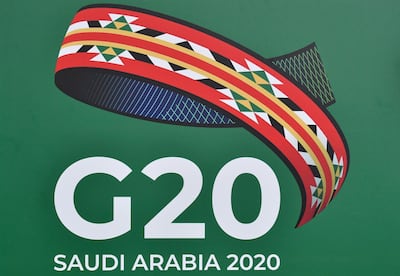Earlier this month, Saudi Arabia assumed the presidency of the G20, an international forum for governments and central bank governors representing 19 of the world's richest countries, as well as the European Union. With this privilege comes a unique opportunity for the Kingdom to showcase an impressive array of economic and social reforms under way there. In fact, hosting next year's G20 summit has arguably been one of the biggest motivators for Saudi Arabia in recent times, with its government having recently rolled out major initiatives as a consequence.
The road has no doubt been rocky for Saudi Arabia in recent years as it goes through a period of transition on various fronts. Yet the leadership has been determined to alter the narrative and restore lasting, global confidence in the Kingdom. After all, the G20 host has historically had the responsibility of demonstrating an alignment of values with other member-states.
Indeed on several issues, Saudi Arabia can showcase marked improvements, such as in the quality of life, social transformation, economic progress and the delivery of a more streamlined business environment. Specific reforms have included granting more rights and freedoms to women and relaxing the issuance of visas. In its Doing Business 2020 report, meanwhile, the World Bank has credited the Kingdom for being the world's most improved economy.
Behind this change is a carefully orchestrated mechanism conceived in the Saudi Vision 2030 document, developed under the guidance of Mohammed bin Salman, the crown prince, and in coordination with the country's council of economic and development affairs. While the Kingdom faces myriad challenges in delivering this agenda, it has nevertheless made marked progress in certain areas.
For example, at the G20 summit in Japan this year, Saudi Arabia participated in a women’s empowerment initiative, signing a pledge to promote participation in the workforce and close the pay gap. Domestically, this has been reflected in a series of reforms to advance the role of women and improve their professional and legal rights. There is still a great deal of work to be done but walking down the streets of Riyadh one can see considerable evidence of this change.
Furthermore, in terms of infrastructure, Saudi Arabia has more than $310 billion worth of transport projects that are already under way or being planned. The country has earmarked financial resources for innovative projects in the energy sector, as well as in recycling and waste management. These initiatives will be fundamental to the Kingdom’s economic transformation with the potential to deliver cleaner, more efficient and profitable solutions for global industry.
Saudi leaders have highlighted a number of these themes at the G20, from social inclusiveness to environmental stewardship and innovation and technology, among others. Now the Kingdom must develop innovative approaches to guarantee the durability of these reforms, as well as elucidate the role it wants to play in a changing global landscape.
While planning for next year's summit, it can examine the successes of previous iterations held in Argentina and Japan.
Argentina, for instance, was successful in delivering a compelling narrative about growth opportunities and drawing investor interest and confidence. Japan's use of model cities to demonstrate such concepts as local production for local consumption, and subsidised use of electric vehicles and solar power, provides another useful example to Saudi Arabia on how it can advertise its own urban projects at the heart of Vision 2030, including Qiddiya and Neom. These projects provide vast investment opportunities in energy, tourism, biotech, manufacturing and digital technology, which will be at the core of future growth in the Kingdom.
Riyadh must fully capitalise on the unique convening power of the G20. To this end, the role of the B20 business summit – hosted by Saudi Basic Industries Corporation – will be critical. The Kingdom will have a rare opportunity to set an agenda that highlights Vision 2030’s vast ambitions for research and development while identifying private sector champions, both at home and among foreign investors, who embody this spirit of cooperation and ambition.
The success of Saudi Arabia’s G20 presidency will be defined by its ability to present two clear and genuine messages.
First, the Kingdom would be well advised to lay out a coherent, transparent and realistic path forward for the realisation of Vision 2030, including plans tied to the Saudi Aramco IPO and priority investments in infrastructure, technology and other megaprojects.
Second, there should be no illusions about recent and past challenges, and the hurdles that remain; the Kingdom would benefit from an honest and balanced presentation of changes under way in its society.
Ultimately, the credibility of Saudi Arabia’s reforms will be on display – as much during the G20 as they will in the months and years to follow. Momentum in economic reform and growth must remain long past the G20. The greatest test will be whether these reforms are ultimately capable of catapulting the Kingdom into a new era where it can match the leading economies within the G20 forum.
Dr Adel Al Toraifi was Saudi Arabia’s minister of culture and information from 2015 to 2017. He is now chairman and managing director of Castlereagh Associates, a Middle East-focused advisory firm


